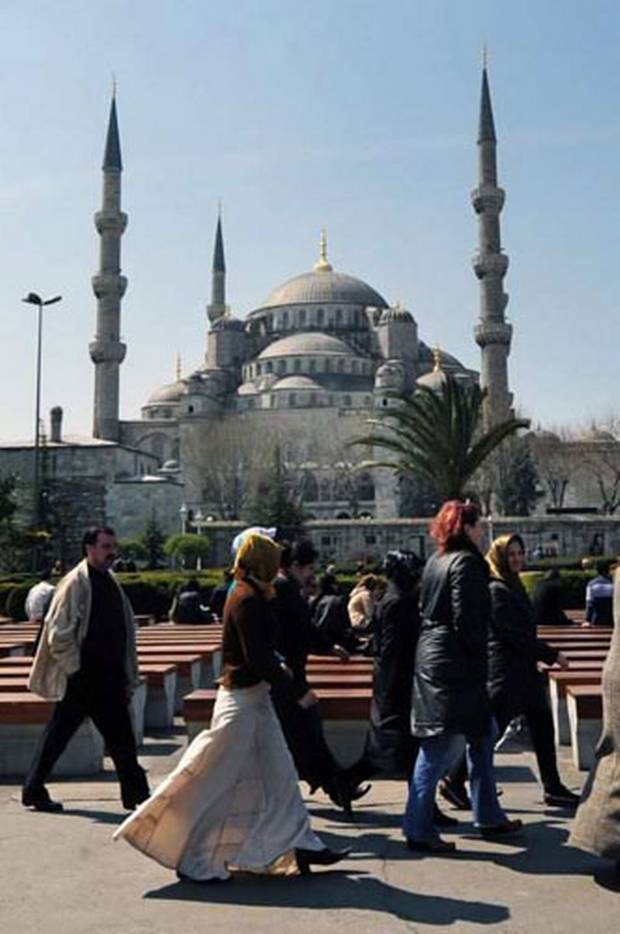An evening spent at the Geneina Theatre in Azhar Park is usually an evening well spent. At the very least, it’s an outdoorsy outing, the rare cool breeze is always worth the effort, and performances are quite likely to be interesting.
Last week’s show, “Romeo and Layla by Tunisian artist Ghalia Ben Ali, was well within this realm. Ben Ali’s atypical onstage interpretation of the Arabic classic love story of Qays and Layla narrates the doomed love story through a collection of mostly original Arabic songs, traditional in style but contemporary in form.
Originally a graphic designer, Ben Ali began acting, singing, and dancing when she moved from Tunisia to Brussels, suddenly feeling “the need to be onstage, the need to say something, Ben Ali told Daily News Egypt. “I just felt I had no need for the stage in Tunisia.
“Romeo and Layla is based on Ali’s eponymous illustrated book. Ali found out the characters of the book reflected her life’s various phases. “When I was younger, I was Layla, but now I am Romeo, more confident, more masculine. In some interpretations, Qays represents the conscious, Layla the unconscious self.
Ben Ali’s barefoot, unselfconscious stage presence was confident and comfortable, her voice deep and powerful, rich and resonant with a husky, appealing quality. She uses it expressively – as she does her face and body – complementing or counterpointing the beat and conveying a whole range of emotions.
The event’s press release described the music as “a combination of oriental and Western jazz but that’s not quite what it was. The covers of Om Kolthoum and Abdel Wahab for example, were relatively faithful, while the original material is, in fact, a reinterpretation of classical forms, rearranged in different fashion rather than westernized.
The twist Ben Ali brought to these mostly non-approached classics made for an interesting innovation. Ben Ali’s voice was complemented by the sounds of the cello, oud, and percussions – played by Katy Adam, Mofaddal Azoum, and El Ezz El Din El Jazoury, respectively. The band’s overall implementation of what they were aiming for, however, could have been tighter and sharper; there was something slightly sloppy about it despite the musicians’ skill.
Ben Ali’s original lyrics have a surprising naiveté to them (“Laila was rich and Romeo was poor, Laila was an angel and Romeo a devil ). In fact, it was clear that Arabic poetry is not her real forte. Bearing in mind that the concert is usually performed for non Arabic-speaking European audiences, however, it seems that it is not the words that are important, but the underlying emotions that Ben Ali attempts to communicate through physical and vocal intonation.
For her Egyptian audience, however, the novelty and energy of the performance clearly trumped the occasionally cringe-inducing poetry, or the moment of confusion, when, during a song about Palestine, Ben Ali inexplicably switched to Spanish. The focal point for them seemed not to be the technicalities of the music or the details of the story, but Ben Ali’s own engaging charm, her sumptuous voice and her obvious enjoyment in telling it.
